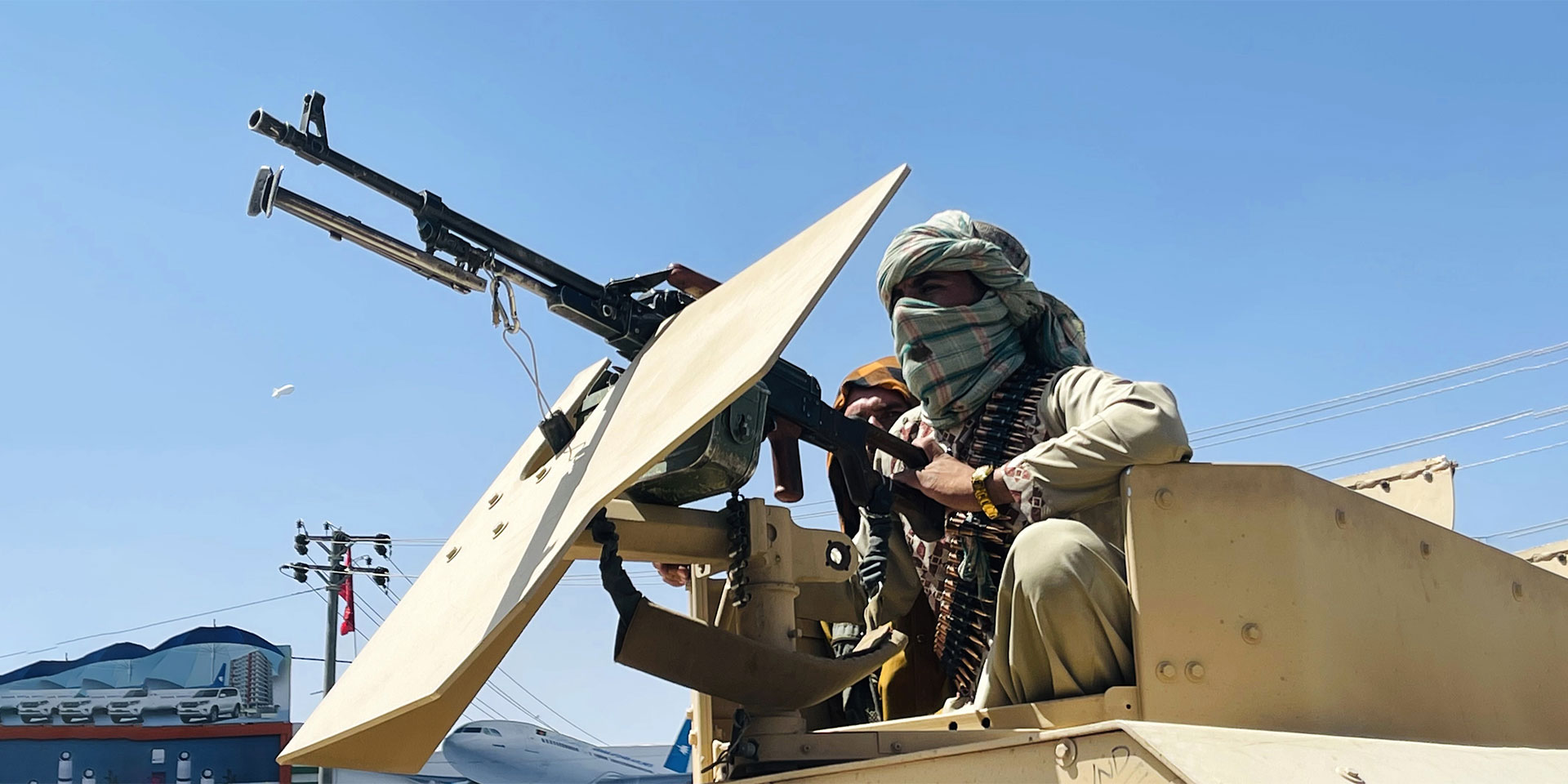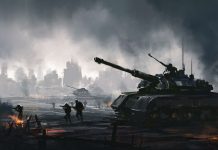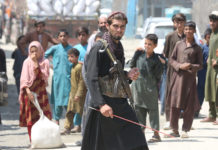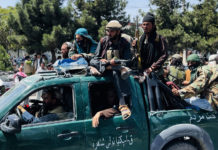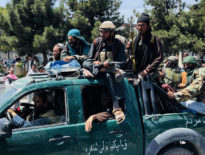It’s hard to know where to begin when it comes to the situation currently unfolding in Afghanistan.
Since the withdrawal of US troops under the order of President Biden and the subsequent flight of large swathes of the Afghan government, a power vacuum has opened up—one which has quickly been filled by Taliban fighters. The ensuing change has caught global attention—and concern—as the militant Islamist movement labelled a terrorist organisation by multiple countries seems positioned to become the de-facto government power in Afghanistan.
Shock. Anger. Confusion. Fear. All these emotions have been felt and voiced by many in the reporting on the situation—be they located in the areas feeling the change or merely commentating safely from a studio abroad.
The barrage of media coverage has provided a dearth of perspectives many of which, it should be noted, have come from reporters, journalists and columnists who are watching the events safely from a distance—be that in Australia, America or elsewhere. My voice is yet another which speaks to this issue from a privileged distance. There are those closer to the conflict—be they in the country or with experience in neighbouring regions—who have been commentating on the uncertain circumstances, speaking to journalists or releasing statements. Unfortunately, these voices seem to be in the minority, perhaps due to issues of access or fear of speaking out. Stories such as the plight of Afghanistan’s first female paralympian, or CNN’s coverage from the streets of Kabul are the exceptions rather than the rule—and even these are mediated through the filter of western news reporting.
That’s part of the problem. Looking at the news, reading the opinions of experts and analysts about the situation, it’s hard to know what I could add to their perspective that is missing.
And yet, I cannot shake the feeling that in looking at the broader coverage that these important voices from those inside the country are being drowned out in the sheer noise of it all.
There’s an understandable tendency in circumstances like this to frame the developments in the context of the bigger picture, or the personal effect this news might have on its audience. Questions like ,“How did this happen?”, “What comes next?”, and “What does this mean for the rest of the world?” are at the forefront of the minds of many, and it makes sense that they are what much of the media coverage choses to focus on. But they’re not what sticks in my mind.
What sticks in my mind are the images of Kabul’s airport.
Thousands flocking an airport completely ill-equipped to deal with the chaotic situation that the withdrawal of American and other allied troops has created. Hundreds frantically chasing planes down the runaway as they prepare to take off–some even clinging to the outside in a desperate attempt to flee by any means necessary, several even dying because of their attempts to get away.
Selfie Angle- The last moments of men clinging to some parts of the C-17 yesterday, #kabulairport #Afghanistan #Talibans pic.twitter.com/QvSeJ2bK0t
— Aśvaka – آسواکا News Agency (@AsvakaNews) August 17, 2021
Even beyond the Afghan capital’s airport, what sticks in my mind is the fear and uncertainty espoused by citizens. Women, worried that their freedoms will be restricted by the new ruling powers of the Taliban, who openly enforce a strict, fundamentalist interpretation of Islamic law which curtails women’s rights as national policy. Youth, whose parents have died fighting against a potential Taliban takeover, worried about what the future may hold. Those who worked with the American troops or U S citizens situated in the area, worried they may be punished or even executed as a result.
The stories of this chaos have rightly been labelled as tragic, heartbreaking and disturbing by those reporting on them, but when I find myself staring at them, or reading the stories, I find them to be something else.
They are familiar.
This is not to say that they are not heartbreaking—indeed they are. But they are merely the latest in a series of tragic and disturbing stories of a similar ilk—from both Afghanistan and across the globe. America’s 20 year occupation of Afghanistan is littered with truly horrific stories of abuse being ignored against the most vulnerable members of the nation—both by the Taliban and by those that the US allied with. Then there’s the stories coming out of Israel earlier this year, where hundreds of Pakistani civilians lost their lives after an escalation in the ongoing conflict between the Israeli Defence Force and Hamas. Or the ongoing genocide of the Uyghur population in China.
Many have reached even further back, comparing the evacuation taking place in Kabul to the evacuation of Saigon at the conclusion of the Vietnam War. There have been many comparisons between these two conflicts, with some opining that the campaign in Afghanistan will, in time, be looked at as a similar example of an unnecessary conflict which the US propagated—as others have openly claimed for years.
Two iconic images clicked 45 years apart. The US Embassy staff fleeing from Saigon (top) and Kabul (bottom).
Never trust a friend who leaves you saying he'll be back – Old Vietnamese saying. pic.twitter.com/AIItm8aReA
— Anand Ranganathan (@ARanganathan72) August 15, 2021
Much of the discussion surrounding this conflict—and the other conflicts mentioned—is filtered through an intensely binary lens. As journalist and veteran of two tours of Afghanistan Laura Jedeed writes, she is Team Out Of Afghanistan “which, as a friend pointed out to me today, has always been Team Taliban. It’s Team Taliban or Team Stay Forever. There is no third team.” The way discussion often breaks down, it is assumed that if you stand against the Taliban the only other option is an indefinite occupation of the region by the United States.
Similarly, the media coverage of the Israel-Palestine conflict is often occupied with broad discussions of who is “in the right”, or is justified in their actions and who is on the side of the morally deficient. Many conflate the existence of a Jewish-controlled Israel with the right for the Jewish people to exist as a nation. Support of Palestine is viewed as anti-Semitism or supporting the fringe Palestinian groups who attack Judaism, instead of being read as criticism of the discriminatory practices which harm Palestinians put in place by those who currently wield power in the region. And all the while, while talking heads in far off country debate the morality of the actions of one group versus another, innocents are having their lives ruined or taken by the people who wield power at any given moment.
These types of dichotomies are not entirely false. It is true, as has clearly been seen, that the only thing preventing the Taliban from taking power once more was the US presence in Afghanistan. But to act like this justified a continued occupation ignores the fact that many of the issues that are attributed to the Taliban were also present under the government which the United States allied with. Furthermore, despite the stated goal of working to help the Afghanistan government and military fend for themselves, reports indicate that the attempts at creating a stable government or military were mismanaged on multiple levels, and subject to corruption in various areas. And that’s not even touching on the crimes perpetrated against the Afghan people by the occupying forces— something which Australia is currently reckoning with in Ben Robert-Smith’s public defamation trial.
Creating and sustaining fair governance is a complex and unenviable task. I don’t write this article to diminish the challenges faced by those involved, be that in Afghanistan, Israel or any country dealing with political upheaval—challenges which are exasperated by an inability to separate national, ideological and religious identity. It would be foolish of me to attempt to explain the “How did this happen?” or “How do we fix this?” in this article—even dealing with just one of these conflicts those question would be well beyond my scope. That being said, there is one commonality in these conflicts, and that’s the one that I feel is lost in the noise of the discourse surrounding these issues.
When we look at these conflicts from our western perspective, we often neglect the perspectives of those directly involved and impacted by them. America’s involvement in Vietnam was as a proxy war against the Soviet Union—it became a conflict representative of the Cold War tensions between communism and capitalism, instead of being about the Vietnamese people struggling and fighting for their causes and beliefs. In turning it into a proxy war, the conflict was only escalated, and more harm was propagated against the Vietnamese—and by outside forces. In a similar fashion, the invasion of Afghanistan and fight against the Taliban became one of the key conflicts in the “War on Terror”, obscuring the effects it had on those living in the nation when discussed by the global community. Support of a nation or an ideology is treated as binary when there are numerous aspects which should be assessed individually that create a complex tapestry.
But while this tapestry may be complex the pain we see is not.
The anguish of the thousands flocking Kabul airport is not complicated. The fear of those now living under Taliban rule is not difficult to understand. And the pain that countless lives have experienced both under Taliban rule and US occupation is something that should be universally understood.
That, more than anything else, is what we should be focusing on.
It can be easy to want to focus on the big picture, to tie things back to us. Not only does it centre our experience—it also provides an opportunity to avoid directly facing the horror that conflict can bring. This is a mistake. Focusing on the big picture does not make the effect of the conflict go away. Far from it. The bigger picture, if we are not careful, can be used to prolong conflict and suffering, even as we avert out gaze from it.
You may also be interested to read:
It has been said that conflict always has a cost. We would do well to remember this when staring in horror at the situation in Afghanistan as it continues to unfold.
If you would like to support those currently in Afghanistan, consider giving to World Vision or UNHCR, both of which are currently still operating in the country to help those in need.
Ryan Stanton is a PhD student studying Media and Communications at the University of Sydney. While his thesis focuses on podcasts and games, he is keenly interested in the ways the media covers political and social issues.
A version of this article was first published on Signs of the Times Australia.












